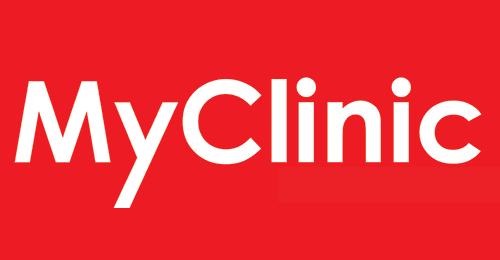Third dose of COVID-19 vaccine recommended for people who are severely immunocompromised
The Australian Technical Advisory Group on Immunisation (ATAGI) have recommended a third dose of COVID-19 vaccines for people who are immunocompromised.
People with the following immunocompromising conditions and therapies for which a 3rd primary dose is recommended:
- Active haematological malignancy
- Non-haematological malignancy with current active treatment including chemotherapy, radiotherapy, and/or hormonal therapy, but excluding immunotherapy with immune checkpoint inhibitors
- Solid organ transplant with immunosuppressive therapy
- Haematopoietic stem cell transplant (HSCT) recipients or chimeric antigen receptor T-cell (CAR-T) therapy within 2 years of transplantation.
- These patients require revaccination with 3 additional doses of COVID-19 vaccine, irrespective of doses given prior to transplantation, commencing generally ≥3-6 months after their transplant after discussion with their treating specialist.
- Those beyond 2 years from transplant should discuss with their treating specialist about the need for a 3rd dose.
- Immunosuppressive therapies including:
- High dose corticosteroid treatment equivalent to >20mg/day of prednisone for ≥14 days in a month, or pulse corticosteroid therapy.
- Multiple immunosuppressants where the cumulative effect is considered to be severely immunosuppressive.
- Selected conventional synthetic disease-modifying anti-rheumatic drugs (csDMARDS):
- including mycophenolate, methotrexate (>0.4 mg/kg/week), leflunomide, azathioprine (>3mg/kg/day), 6-mercaptopurine (>1.5 mg/kg/day), alkylating agents (e.g. cyclophosphamide, chlorambucil), and systemic calcineurin inhibitors (e.g. cyclosporin, tacrolimus)
- excluding hydroxychloroquine or sulfasalazine when used as monotherapy
- Biologic and targeted therapies anticipated to reduce the immune response to COVID-19 vaccine:
- including B cell depleting agents (e.g. anti-CD20 monoclonal antibodies, BTK inhibitors, fingolimod), anti-CD52 monoclonal antibodies (alemtuzumab), anti-complement antibodies (e.g. eculizumab), anti-thymocyte globulin (ATG) and abatacept
- excluding agents with likely minimal effect on vaccine response such as immune checkpoint inhibitors, anti-integrins, anti-TNF-α, anti-IL1, anti-IL6, anti-IL17, anti-IL4 and anti-IL23 antibodies
- Primary immunodeficiency including combined immunodeficiency and syndromes, major antibody deficiency (e.g., common variable immune deficiency (CVID) or agammaglobulinemia), defects of innate immunity (including phagocytic cells), defects of immune regulation, complement deficiencies and phenocopies of primary immunodeficiencies.
- Advanced or untreated HIV with CD4 counts <250/μL or those with a higher CD4 count unable to be established on effective antiretroviral therapy
- a 3rd primary dose is not required for people living with HIV, receiving ART with CD4 counts ≥250/μL
- Long term haemodialysis or peritoneal dialysis
ATAGI recommendations
- ATAGI recommends a 3rd dose of COVID-19 vaccine as part of the primary course in individuals who are severely immunocompromised.
- This is to address the risk of suboptimal or non-response to the standard 2 dose schedule.
- The 3rd dose is intended to maximise the level of immune response to as close as possible to the general population.
- This recommendation applies to all individuals aged ≥12 years with certain conditions or on therapies leading to severe immunocompromise, as defined in above.
- An individual with an unlisted condition should only be considered for a 3rd dose where the treating physician has assessed the patient as having a similar level of severe immunocompromise to the listed conditions above, and where the benefits of a 3rd dose of COVID-19 vaccine outweigh the risks.
- Individuals who currently are not severely immunocompromised but who will commence significant immunosuppressive therapy ≥ 2 weeks after their 2nd dose do not require a 3rd dose, as it can be expected that an adequate response to 2 primary doses will be achieved.
- ATAGI does not recommend subsequent doses beyond the 3rd dose at this time. Many patients who fail to respond to 3rd doses may not respond to further doses.
- Protection from 3 primary doses in severely immunocompromised individuals may still be lower than the general population. People should continue risk mitigation strategies such as mask wearing and social distancing even after receipt of a 3rd dose.
- ATAGI will continue to monitor the evidence around duration of protection and advise on the need for subsequent (booster) doses in immunocompromised populations to address waning of protection or risk from variants of concern.
- ATAGI will provide further advice on booster doses (including for healthcare workers, older adults and the general population) separately. See about the need for additional doses of COVID-19 vaccines.
Recommendations specific to the 3rd dose
- An mRNA vaccine (Pfizer or Moderna) is preferred to Vaxzevria (AstraZeneca) for this 3rd dose.
- AstraZeneca can be used for the 3rd dose for individuals who have received AstraZeneca for their first 2 doses if there are no contraindications or precautions for use, or if a significant adverse reaction has occurred after a previous mRNA vaccine dose which contraindicates further doses of mRNA vaccine (e.g., anaphylaxis, myocarditis).
- The recommended interval for the 3rd dose is 2 to 6 months after the 2nd dose of vaccine. A minimum interval of 4 weeks may be considered in exceptional circumstances (e.g., anticipated intensification of immunosuppression, outbreaks). People who have had a second dose more than 6 months ago should receive a 3rd dose whenever feasible.
